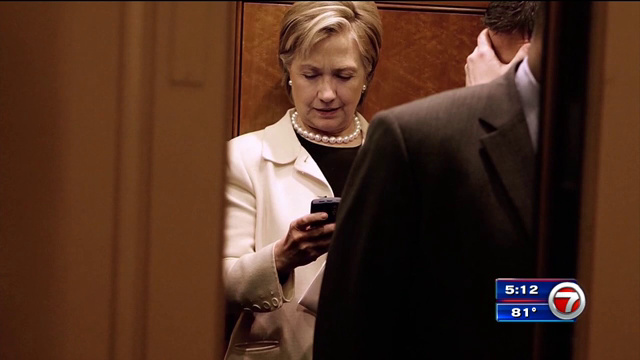NEW YORK (AP) — The FBI told a federal court it needed a search warrant to look at thousands of Hillary Clinton’s emails on the laptop of former U.S. Rep. Anthony Weiner because they had the potential to cause “grave damage to national security” if disclosed, according to court documents made public Tuesday.
The wording was contained in a redacted search warrant and other court papers that were previously under seal in the investigation of an online relationship between Weiner, the estranged husband of top Clinton aide Huma Abedin, and a teenage girl in North Carolina. The papers offered no new revelations about Clinton’s emails or the scope of a case that factored into the presidential election.
A sworn statement dated Oct. 30 from an FBI agent whose name was blacked out cited a previous inquiry into Clinton’s personal computer server that found 22 emails classified “Top Secret.” The classification “is significant because it means that the unauthorized disclosure of those emails could result in exceptionally grave damage to national security,” the agent wrote.
In the Weiner probe, the FBI discovered header information on emails pointing to correspondence to and from Clinton, the papers say. Given the findings of the earlier probe, “there is also probable cause to believe that the correspondence … contains classified information which was produced by and is owned by the U.S. government,” they say.
U.S. District Judge P. Kevin Castel ruled Monday that the public had a right to see the search warrant application and supporting court paperwork, but he said portions would be blacked out to protect the identity of the investigating agents. The judge also ordered the redaction of sections of the paperwork related to the ongoing investigation into Weiner’s online correspondence.
The discovery of the emails on the disgraced New York congressman’s laptop prompted FBI Director James Comey to briefly reopen an investigation that he had closed over the summer into Clinton’s use of the private server to handle emails she sent and received as secretary of state.
After getting court consent to delve into the newly discovered emails on Oct. 30, agents spent several days analyzing them before Comey announced that they contained no new evidence of any wrongdoing by Clinton.
In statement, E. Randol Schoenberg, a Los Angeles lawyer who had sued to obtain the court papers, said Tuesday that he saw “nothing at all in the search warrant application that would give rise to probable cause, nothing that would make anyone suspect that there was anything on the laptop beyond what the FBI had already searched and determined not to be evidence of a crime, nothing to suggest that there would be anything other than routine correspondence between Secretary Clinton and her longtime aide Huma Abedin.”
Copyright 2024 The Associated Press. All rights reserved. This material may not be published, broadcast, rewritten or redistributed.

